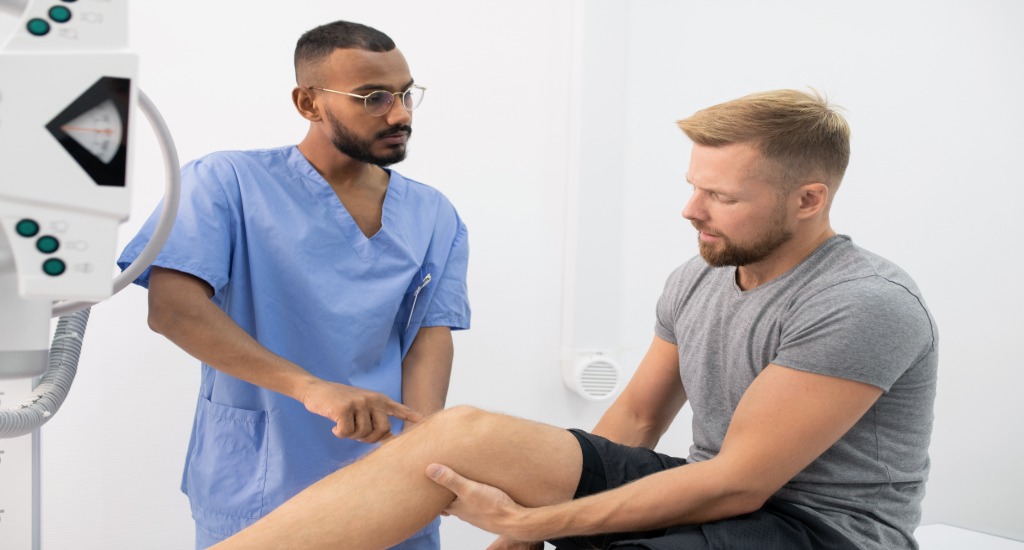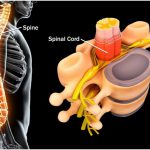If you have read our previous blog on “How India has become a favorite destination for TKR” then you would have known about the procedure for Total Knee Replacement (TKR) surgery and how patients around the world are looking at India for this complex surgery. Although, the ratio of satisfied patients is on a higher side but still 100% of patients may not be satisfied because for some after surgery the quality of life seems insufficient that depends on physical, social, and most importantly psychological factors. Here we will evaluate how the quality of life is after TKR.
Total Knee Replacement is a massive surgery among orthopedic doctors in India. Even though your new knee is going to imitate the old one in many ways, it will still take a while to get used to it. Complete recovery can be between 6 months to a year from the surgery, which is definitely worth the wait. If you want to adapt quickly to your new knee joint and enjoy an active life then following the proper recovery process is very crucial. Not only does it help in the long run, but it also allows you to easily and fully heal from the surgery. With advanced technology in the medical field, the orthopedic surgeon will make you move around with supportive devices within a day of your knee treatment.
In the healing and rehabilitation process, the physiotherapist plays a very important role. To improve your muscles you need to create an exercise plan where you use your new joint as much as possible with caution. Your orthopedician and physiotherapist can make you walk short distances, climb 2-3 stairs, bend the knee slightly within 2-3 days of the procedure, and conduct everyday tasks such as bathing and using the toilet with limited assistance. For follow-ups, it is not necessary that you need to visit the doctor’s clinic or hospital, through orthopedic online consultation also your doctor can check your progress. In most cases, it can take up to 6-8 weeks for patients to perform most of the tasks just like with a regular knee joint as they used to do.
Here are the changes you will begin to experience after surgery:
Sitting cross-legged: Post-surgery, it depends on how is your bone quality to be able to sit with folded legs and also need a healthy spine and sound hips. Reports have shown that those who have replaced their knee cap can squat easily. However, researches have also shown that it does give a load to your implanted knee and may cause high damage.
Driving: Port surgery, the driving capability depends on how much bending is required to work on pedals and how long the brake reaction time is. Compared with manual vehicles, it is easy to drive automatic cars. On average, a patient can drive after 6 to 8 weeks post-surgery but one should ensure that no medicines that can cause fatigue should be used by patients.
Traveling and flying long-distance: Long-distance traveling through flights can take a toll on the operated knee. Cars with cramped spaces can also cause a lot of problems. It is advisable not to travel for the initial few months but even if you plan to travel then it is recommended to drink plenty of water, avoid alcoholic drinks, use compression stockings, and through online orthopedic doctor consultation check if you need a medication to prevent clots in legs. After your surgery, airport security could become more of a concern because the metal detectors at the airport may be set off due to the metal components in your artificial knee so one should be prepared for extra screening. Wearing loose pants is advisable so that in such scenarios, it would be convenient for you to show the officers the incision of your knee.
Playing sports: Even if you feel physically fit, it might not be the right time to be involved in contact sports because there is a possibility that your artificial knee will crack or cause more damage. Intense activity can affect the implant’s longevity. When participating in activities such as hiking, running, jogging, or sports played within a court such as basketball, squash, badminton, etc., one should take extra care.
Sexual activity: Total Knee Replacement is not only for elderly people as this can happen to anyone at any stage of life. If anyone wants to have satisfactory and pain-free sexual activity post-surgery you need to give yourself around 6 weeks.
Dental procedure: A surgical operation brings along with it the danger of infection and as in every other surgery; patients who undergo a knee replacement have a greater chance of getting infected. Before any invasive or even a dental treatment, the patient might be recommended to take antibiotics. Therefore, it is advised to stop major dental surgery for at least 3 months after such knee surgery or to take antibiotics before performing any surgery to prevent infection of the knee.
In people over the age of 60 years, complete knee replacement operations are typically very successful. People are very likely to return within a year to their nearly normal working joint after a replacement. With a relatively high degree of ease and comfort, they can perform most of the tasks they used to. However, proper exercise, staying active, maintaining a healthy weight, and routine health checks are highly important. If you have any questions about your body or activity you are planning to do then always advisable to speak to your orthopedic doctor or physiotherapist. If appropriate care is not taken then the damage to your knee can be very dreadful. Patients may need on and off pain killers and, when undertaking any invasive operation, may need to take antibiotics. However, these changes are worth living a good quality of life which the patient gets after a knee replacement.















